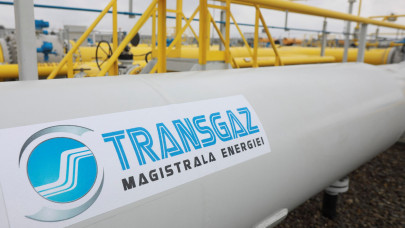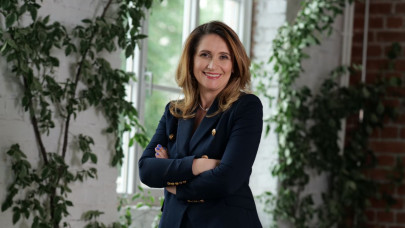“It's little of what we see now in banks' portfolios, where green credit exposure is below 3% of total loans. When we look in detail, we see that it is even less on the green lending side of non-financial companies, where we think there would be an opportunity for credit institutions, not only for them but also for the real sector, because we start from at a very low level of financial intermediation in Romania, last place in the European Union", said Luminița Tatarici, Head of Service, Financial Stability Directorate, National Bank of Romania.
Currently, companies are not motivated enough to access green credit.
"Even for a company that does all its homework, knows its goals, and calculates indicators, green financing brings additional consumption of resources. There are no significant differences in interest rates, instead, green financing comes with certain criteria that must be respected at the level of reporting and subsequent monitoring", said Magdalena Caramilea, Sustainability Director, Autonom Group.
In the context where there is no balance between the additional efforts involved in accessing green credit and the financial benefits obtained, organizations prefer to choose the classic financing option.
"The difference in costs is not visible. From the point of view of costs, a company would take on an extra task without seeing tangible benefits, but the sustainability objectives show the fact that that company also looks to the future", said Bogdan Zincă, Head of the Contracting Service of the General Directorate of Treasury And Public Debt, Ministry of Finance.
Green finance is only one component of the European regulatory framework, which should support the sustainable transformation of the economy. Elements such as taxonomy, SFRD - Sustainable Finance Disclosure Regulation, CSRD - Corporate Sustainability Reporting Directive, Green Bond Standards, and Green Claims Directive are still in the first phases of the assimilation process in corporate strategies and organizational cultures of companies.
One of the most important changes will concern non-financial reporting. According to the CSRD, companies will be obliged to publish, starting in 2025, non-financial reports compliant with the European Sustainability Reporting Standards (ESRS).
"On the question of whether we are moving too fast or there is too much pressure, there were discussions that made a comparison with financial reporting as we know it today - with profit and loss account, balance sheet, cash flow - which has developed in centuries. Now, they want to invent in 2-3 years a functional and very precise sustainability reporting system, which is something completely new. (...) We are in a rather busy and stressful moment for the issuers and for the companies that next year will have to have all the data to be able to report them starting in 2025", said Remus Dănilă, Director of Investor Relations and Business Development, Bucharest Stock Exchange.
Actors on the front line of implementing sustainable economic transformation measures, especially banks, have an essential role in transmitting information to all parties involved.
"Two years ago, we were talking about Green Loan Principles (GLP) or Green Bond Principles (GBP), which are standards that are more accessible to banks, but also to borrowers. We are now talking about the European taxonomy and the integration of definitions of what green finance means. This is precisely why some companies, although they want to access loans or even access loans with transitional features, need more time to assess their baseline (basic conditions - n.n), to define what those risks are significant issues that they have to address, to choose some significant KPIs to associate with green lending or the growth of sustainable lending", said Daniel Sava, Head of Structured Finance Department, UniCredit Bank Romania.
At the population level, only one Romanian out of four is interested, when accessing a loan or a financial service, in the ethics and responsibility of the bank's investments, according to the study "Romanians and sustainable economy", carried out by IZI data for the Embassy of Sustainability in Romania, and presented in the debate. The most important criteria are the safety of the investment and the financial strength of the institution. The IZI data study was carried out in August 2023, through the CAWI (Computer Assisted Web Interview) online methodology on a population of 1049 respondents, representative at the urban-rural national level, with men and women aged between 18 and 65, users of the Internet.
Sustainability Talks is a program developed by the Embassy of Sustainability in Romania with the aim of putting public policies into perspective and aligning them with the principles and objectives of sustainable development. Thus, in some thematic meetings, specialists from the business, public, academic, or non-profit environment are invited to debate topics relevant to Romania's sustainability agenda. The Embassy of Sustainability in Romania promotes the economic model in which companies, through partnerships, can solve social and environmental problems without sacrificing economic efficiency (profit). The embassy is a non-profit, private, and apolitical initiative.












